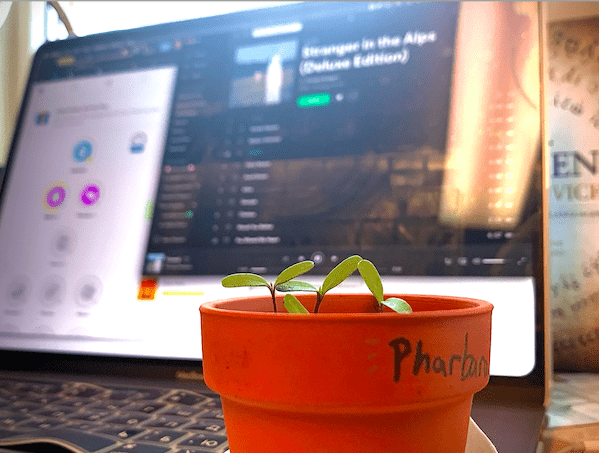I am not good at many things. However, I am okay at a handful of things.
I can reach books off of high shelves. I can recommend a movie for you to watch based on your preferred genre. Set a plate of food in front of me, and *poof*—I can make it disappear before your very eyes.
If there’s one thing I’m particularly okay at, it’s writing. Sometimes I like to believe otherwise, but if the opposite were true, I think Hayley and Abhigna would have kindly kicked me off 186 South College by now.
Disclaimer: I am not an English major or a Writing Fellow, and I do not, nor do I pretend to, know all the in’s and out’s of the complex galaxy that is the English language. However, over the years, I’ve made enough vocabulary, grammar, and spelling errors to provide me with some insight that I hope can assist you. With a little practice, patience, and dedication, anyone can become a skilled writer.
Hence, I am pleased to present some tips and tricks for reaching your full writing potential, because if your professors, Purdue OWL, or pure reason can’t sway you, maybe this freshman can.
1. Proofread your paper before asking others to read it
I cannot — let me pause here to let that sink in — stand it when I’m asked to proofread something littered with tiny mistakes. You may not think they’re a big deal. After all, what are your professors who have spent years getting graduate degrees for other than correcting your goofy spelling errors (the red squiggly lines are not just your imagination, friends) and reminding you for the umpteenth time that “The period goes inside the quotation marks.”
In case you’ve forgotten, a gentle reminder that you’re human. All of us are prone to making an occasional error in our work, and it takes a while to get the hang of the myriad of spelling and grammar rules out there. You can’t spell revision without vision, so look over your work at least once after writing it.
2. Write something you enjoy reading
If you don’t like how it sounds, chances are we won’t like it either. If you start zoning out while reading, either you need to fine-tune your writing to make it more engaging, or that sentence is too long. It’s really just a matter of trusting your gut as to what sounds pleasing to that little voice in your head that vocalizes what you’re reading.
3. Check citations
Yes, not everyone is going to read them, and yes, they are a pain in the neck to compile. However, sloppy, ill-formatted citations, both on a Works Cited page and in the text itself, are an eyesore, especially if you get a citation nut like me looking over your work.
There are plenty of digital resources out there to help you figure out what to cite and how to cite it. Remember your ancestors who did not have Purdue OWL!
4. Become good friends with a thesaurus
There exists a multitude of words beyond “good,” “great,” and “interesting.” Do these words get the job done? Sure. Is reading “excellent” 15 times in the span of the same paragraph enjoyable? No.
You don’t need an actual thesaurus. Simply Googling synonyms for a given word will yield a vast array of websites and suggestions for different terms to spice up your work. Continue reading






